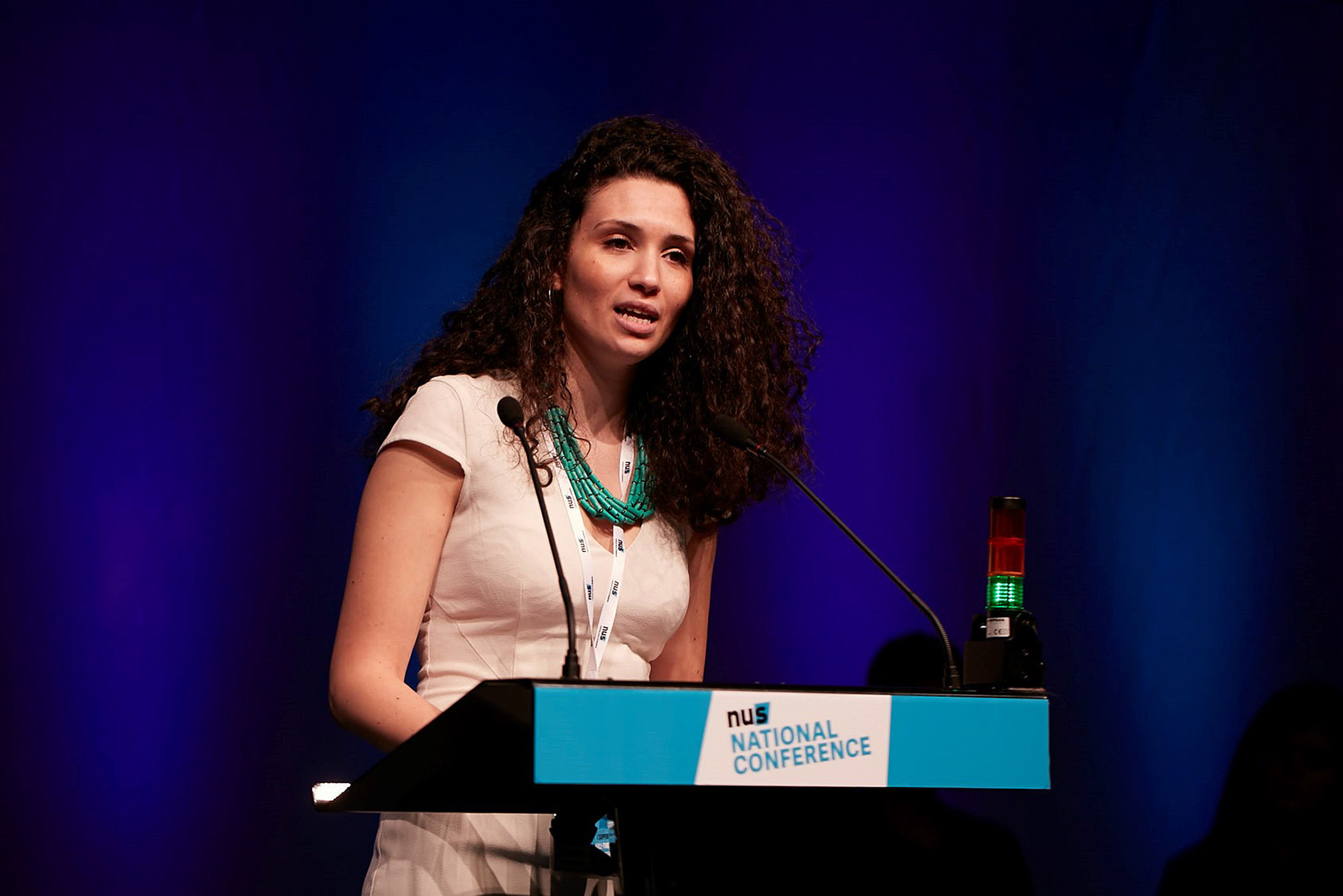Britain’s leading universities are on the verge of breaking ties with the National Union of Students (NUS) after it elected a left-wing president who refused to condemn the Islamic State group.
Students at Oxford and Cambridge universities declared on Thursday that they would be holding referenda to determine whether they should remain associates of the NUS.
The announcements were made after Malia Bouattia, 28, was made the first black Muslim president of the national body.
Ms Bouattia has courted controversy in the past for attacking “Zionist-led media outlets” and suggesting that non-peaceful “resistance” is the most suitable solution to the Palestinian conflict with Israel.
In 2011, while she was still studying at the University of Birmingham, Ms Bouattia co-authored an article in which she said that the university was “a Zionist outpost in British higher education”.
More recently, during her role as the NUS black students’ officer, Ms Bouattia voted down a motion to condemn Islamic State, on the grounds that doing so would be “blatant Islamophobia”.
News of the president-elect’s previous comments caused widespread outrage on university campuses, prompting 57 Jewish student leaders to pen an open letter to her, demanding that she clarify her position towards them.
In her response Ms Bouattia claimed that she had been “misrepresented”, adding that she was anti-Zionist but not anti-Semitic.
Following her election at the NUS national conference in Brighton on Wednesday, members of the audience also applauded student delegates for suggesting that Holocaust Memorial Day should be shunned because it is not “inclusive”.
Although only in its infancy, the campaign to disaffiliate from the NUS has gained support from students studying at the universities of Durham, York, Westminster, Birmingham, Edinburgh, the London School of Economics and King’s College London.
Since Ms Bouattia’s election on Wednesday, several student groups have launched social media campaigns on Facebook, encouraging their universities to cancel their NUS membership.
In an online poll conducted by the Young Liberal Society, a group made up of more than 250 students from leading universities, a motion calling for “no confidence and disaffiliation” from the NUS gained unanimous support.
The potential fallout from Ms Bouattia’s election could deal a serious financial blow to the NUS, which represents the majority of the 2.3 million students studying in Britain.
Student unions at large universities typically pay an annual fee of between £50,000 and £52,000, which the NUS charges to provide support and training.
Writing in the Jewish Chronicle on Wednesday, Maajid Nawaz, co-founder of the anti-extremism think-tank the Quilliam Foundation, wrote: “The Union of Jewish Students is naturally alarmed at her new role as President of the NUS. So should we all be.
“It was Malia Bouattia who led the charge at the NUS to block a motion that sought to condemn Isis and show solidarity to the Kurds fighting them, because it was deemed ‘Islamophobic’.
“At this same meeting the NUS did pass a motion to boycott Ukip… Thus, in a sign of the terrible times in which we live, Britain’s student leadership found it easier to condemn Ukip than Isis.
“And we wonder why the populist right is on the rise?”
Commenting on the campaign to leave the NUS, Megan Dunn, the incumbent president, said: “To anybody here or back on campus that is whispering of disaffiliation from NUS because of this conference – know this: We are stronger when we work together.
“And when students’ unions are under attack we are better off united than we are standing on our own, believing we can defend ourselves by standing apart.
“So don’t walk away. Get organised, stand up for your beliefs. Fight for what you believe in. Because when you do, win or lose, we are stronger together.”
Ms Bouattia declined to comment.


